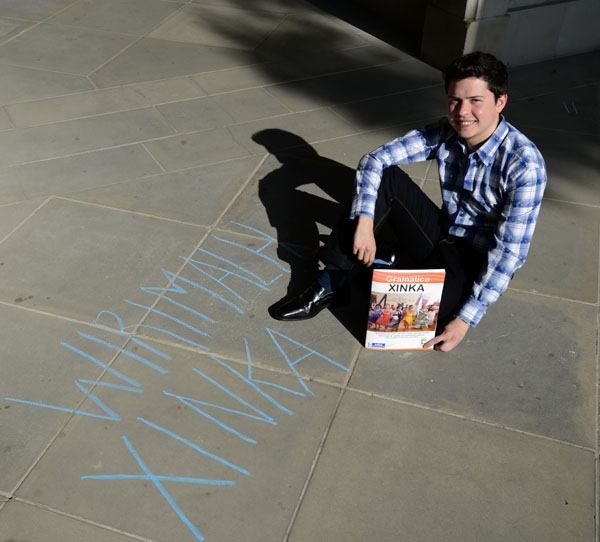
Rodrigo Ranero ’14
While still in college, linguistics and cognitive science major Rodrigo Ranero ’14 helped the Xinka people of Guatemala launch a project to rescue their dying language and preserve their cultural identity. Along the way, he landed grants from the Strauss Foundation and the Davis Projects for Peace. Here is the path that led Ranero back to his homeland for two consecutive summers.
1) Grow up in Guatemala speaking Spanish and English, like your mom. Get encouraged by your parents to pursue another language. Pick Italian because you love film. Become fluent. Go on to study French. Then Mandarin Chinese. Then German.
2) Start thinking about college. Happen across Pomona on Wikipedia. Decide you want to study linguistics here after talking it over with an old mathematician family friend who kind of looks like Gandalf. Get in. Conduct research with Professors Mary Paster and Michael Diercks.
3) Talk with another Pomona student from Guatemala about the importance of putting classroom learning into practice. Realize your home country is a perfect place to apply your linguistics training because of the diversity of languages. Decide to focus on the nearly extinct Xinka language, one of the few not related to Mayan.
4) Apply for a summer Undergraduate Research Project grant to do linguistic fieldwork with the Xinka language in Santa Rosa, Guatemala. Land the grant. Find out there are no more Xinka speakers left. Discover the existing documentation of Xinka is laden with jargon—and it’s in English. Carry on anyway.
5) Learn that the Council of Xinka People of Guatemala is interested in a project to save the language. Drive to Santa Rosa to talk with them. Wait for a decision. Get the OK. Help guide conversations about which dialect to choose. Hold workshops and community discussions. Create a basic Spanish-Xinka textbook for teaching Xinka in schools and elsewhere.
6) Return to Pomona College. Line up more grants to carry on the project. Head back to Guatemala this summer to work on two more textbooks. Plan to go on to earn a linguistics Ph.D. specializing in theoretical syntax. Expect to put it use wherever his help is needed to keep endangered languages alive around the world.
